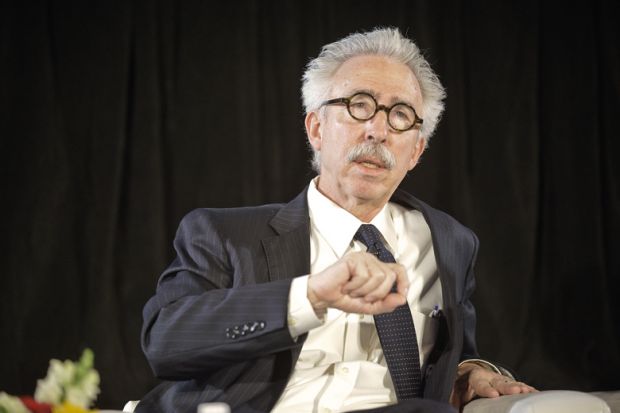Politicians will provide additional funding for the US’ ailing public universities, but only once they are convinced that institutions have done all they can to cut costs.
That is the view of Nicholas Dirks, chancellor of the University of California, Berkeley, who told Times Higher Education that it was not possible to “cut your way out of” budgetary challenges such as those faced by his institution.
While spending cuts and income-generation efforts are set to reduce Berkeley’s deficit from $150 million (£123 million) to $60 million over the next two years, Professor Dirks said that years of reductions in public grants would have to be reversed if such institutions were to have a sustainable future.
“I think it may take a little longer before we figure out a new kind of compact for this to happen; but right now, I think Berkeley is taking seriously its part of the bargain, which is to look at where it can cut costs,” he said.
“I think, when there’s a broad sense that we really have done everything that we can do, there will be a sense that the state and taxpayers have to step up as well. I think it’s going to happen, it’s just a political process.”
State funding for public higher education in the US has fallen by 18 per cent since 2008, and in California, tuition fees have been frozen for five years and won’t rise again until at least 2017-18.
Berkeley has been particularly hard hit because of the international market for academic staff that it operates in and because of the cost of protecting its buildings from seismic activity, said Professor Dirks, speaking during the THE World Academic Summit last month.
At the event, Robert Reich, the chancellor’s professor of public policy at Berkeley and secretary of labor when Bill Clinton was president of the US, claimed that public higher education was “dying” in the US.
But Professor Dirks highlighted efforts that Berkeley has been making to reduce costs – for example, by cutting administrative posts – and to increase income. Possible new initiatives include more revenue-generating master’s programmes and professional courses.
With the expectation that more public funding will eventually be forthcoming, Professor Dirks said that he remained optimistic for the institution’s future.
“I think the number of people affected by public education – and in particular the number of people who understand the importance of the University of California, not just Berkeley but the whole system – is consequential enough that we will find different ways to cope with these problems,” he said.
Professor Dirks has announced his intention to step down as Berkeley’s chancellor following criticism of his handling of the institution’s budget and of sexual harassment cases involving high-profile academics. The institution’s financial crisis has forced it to suspend plans for a “global campus” in nearby Richmond Bay, which would have hosted research institutes led by international partner universities.
Register to continue
Why register?
- Registration is free and only takes a moment
- Once registered, you can read 3 articles a month
- Sign up for our newsletter
Subscribe
Or subscribe for unlimited access to:
- Unlimited access to news, views, insights & reviews
- Digital editions
- Digital access to THE’s university and college rankings analysis
Already registered or a current subscriber? Login








